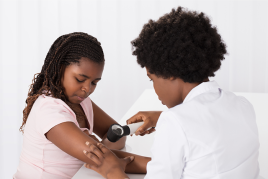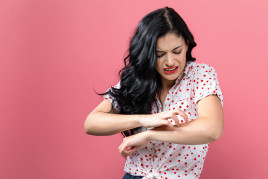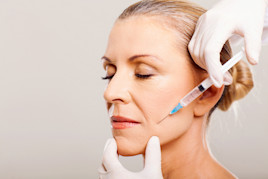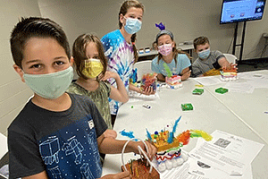Shingles: Who gets and causes
What causes shingles?
A virus causes shingles. It’s the same virus that causes chickenpox.
In fact, to get shingles, you must have the chickenpox virus inside your body. Anyone who has had chickenpox has this virus. After you recover from chickenpox, the virus moves to nerves inside your body, where it goes to sleep. You will always have the virus inside your body. If the virus wakes up, you get shingles.
Many people mistakenly believe that they cannot get shingles because they don’t remember having chickenpox. If you were born in the United States before 1980, you likely had chickenpox.
More than 99% of people born in the United States before 1980 have had it, according to Centers for Disease Control and Prevention (CDC).3 Many people simply don’t remember having chickenpox. They may have been too young to remember or had a very mild case.
Same virus, different names
You may hear different names for the virus that causes both shingles and chickenpox.
It can be called:
Varicella-zoster virus
Human herpesvirus 3
Both names are correct. Despite the word “herpesvirus” in one of these names, this virus cannot cause genital herpes or cold sores.
Age and weak immune system increase your risk of getting shingles
Although anyone who has had chickenpox can get shingles, your risk of developing shingles increases with age. Most people get shingles in their 50s or later in life.
It’s rare to get shingles before 40 years of age. Scientists are still studying why this happens. It’s likely that your immune system keeps the virus dormant. When the immune system starts to weaken, which may start in your 50s, the virus can wake up.
Age increases your risk of getting shingles
Many people who had chickenpox don’t remember having it and are unaware that they can get shingles.

Anyone who has a weakened immune system also has an increased risk of getting shingles. This includes people who have:
Some cancers, such as leukemia or lymphoma
Human immunodeficiency virus (HIV)
To take medication that suppresses the immune system, such as people living with an organ transplant, severe psoriasis, or advanced psoriatic arthritis
To receive certain cancer treatments, such as chemotherapy
Shingles vaccine reduces your risk of getting shingles
While there is no cure for shingles, getting the shingles vaccine can greatly reduce your risk of getting this disease.
Shingles vaccine reduces risk
The CDC recommends the shingles vaccine for healthy adults who are 50 years of age or older.

If you think you may already have shingles, treatment is important. It can reduce your pain and how long the rash lasts.
Find out how dermatologists diagnose and treat this condition at, Shingles: Diagnosis and treatment.
3 Centers for Disease Control and Prevention (CDC). “Prevent Shingles: Get vaccinated.” Page last reviewed July 23, 2018. Last accessed March 28, 2019.
Image
References
Dooling KL, Guo A, et al. “Recommendations of the Advisory Committee on Immunization Practices for Use of Herpes Zoster Vaccines.” Morb Mortal Wkly Rep 2018;67:103-8.
 Molluscum contagiosum: How to safely treat it
Molluscum contagiosum: How to safely treat it
 Biosimilars: 14 FAQs
Biosimilars: 14 FAQs
 Practice Safe Sun
Practice Safe Sun
 Relieve uncontrollably itchy skin
Relieve uncontrollably itchy skin
 Fade dark spots
Fade dark spots
 Untreatable razor bumps or acne?
Untreatable razor bumps or acne?
 Laser hair removal
Laser hair removal
 Scar treatment
Scar treatment
 Botox
Botox
 Free materials to help raise skin cancer awareness
Free materials to help raise skin cancer awareness
 Dermatologist-approved lesson plans, activities you can use
Dermatologist-approved lesson plans, activities you can use
 Find a Dermatologist
Find a Dermatologist
 What is a dermatologist?
What is a dermatologist?